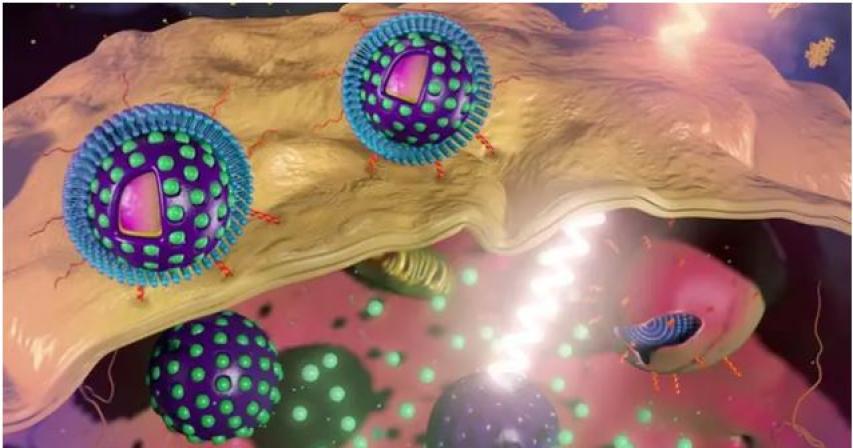NYU Abu Dhabi Scientists Create Innovative Nanospheres for Targeting Tumors

Researchers at NYU Abu Dhabi's Magzoub Biophysics Lab have developed biocompatible, biodegradable nanospheres for tumor targeting, combining detection, monitoring, and light-triggered cancer therapy.
Photodynamic therapy (PDT) and photothermal therapy (PTT) are non-invasive, light-based approaches with the potential to replace conventional cancer treatments, which often have side-effects and complications. However, previous attempts faced challenges due to poor solubility, low stability, and a lack of tumor specificity.
PDT activates a photosensitizer using laser irradiation to generate reactive oxygen species (ROS), toxic to cancer cells. PTT uses a photothermal agent to convert absorbed light into heat, destroying tumor tissue.
In a paper titled "pH-Responsive Upconversion Mesoporous Silica Nanospheres for Combined Multimodal Diagnostic Imaging and Targeted Photodynamic and Photothermal Cancer Therapy," the team presents acidity-triggered nanospheres (ALUMSNs) that protect photosensitizers and photothermal agents and deliver them directly to cancer cells. ALUMSNs enable tumor detection through thermal, fluorescence, and magnetic resonance imaging and facilitate photodynamic and photothermal therapy, improving treatment efficacy.
The nanocarriers developed by the NYUAD team increase the efficiency of delivering these agents to tumors, addressing a critical challenge in light-based cancer therapy.
By: Vibha Kapoor / Source: NYU Abu Dhabi





Comments